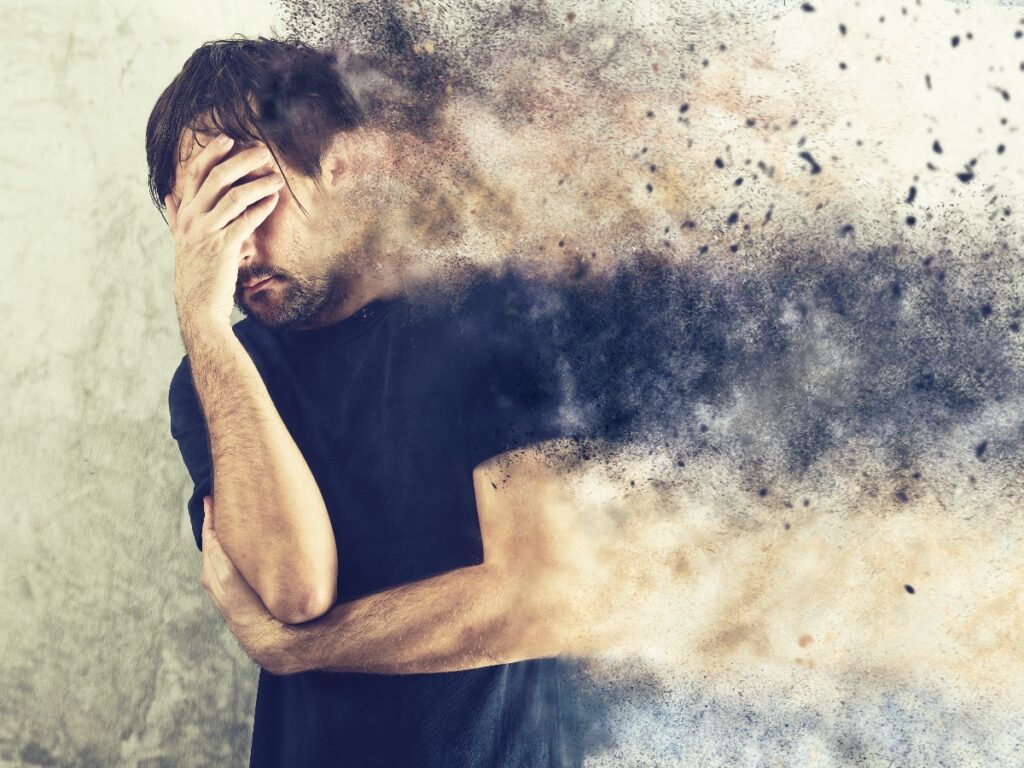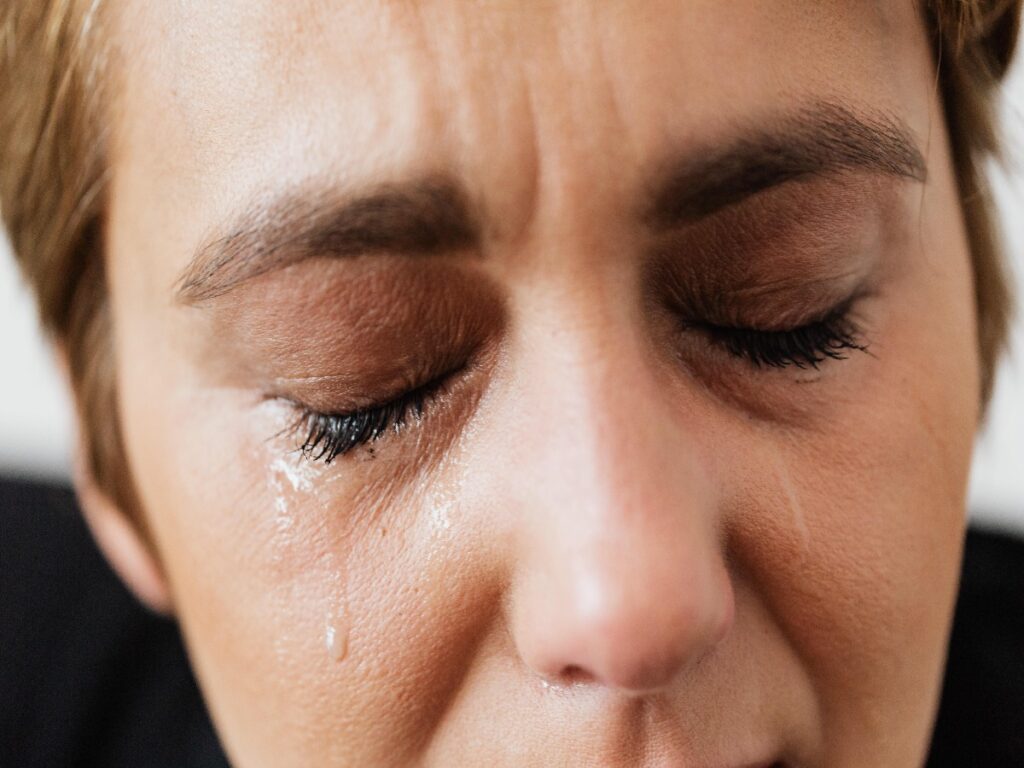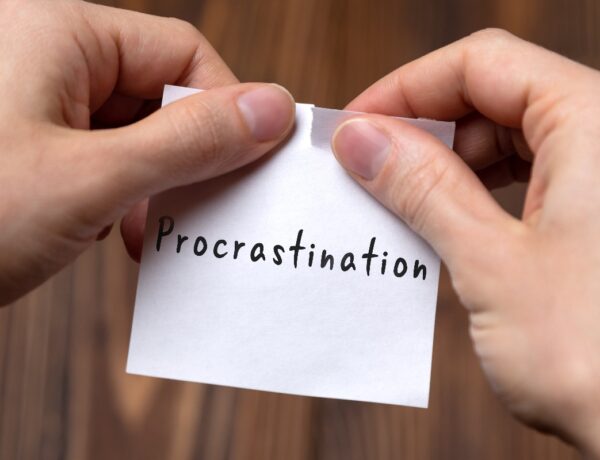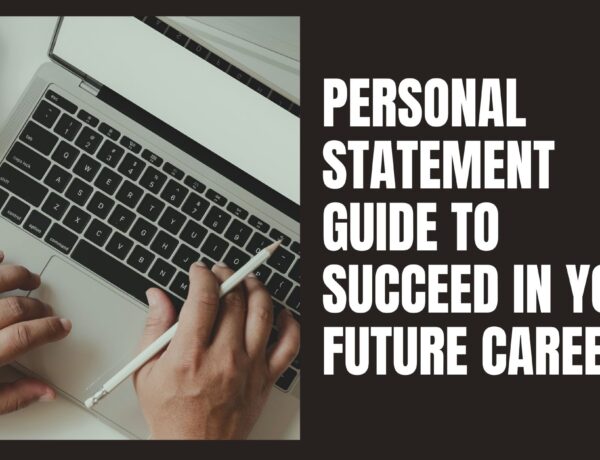
Depression can make life meaningless and hopeless. In this article, you will get educated on the meaning of depression, signs and symptoms of Depression, twelve notable symptoms of depression, why you might be depressed, Types of Depression, Causes and risk factors of depression, common Misconceptions about depression, Depression and suicide propensities, varying depression symptoms with gender and age, similarities between depression and anxiety, some factors responsible for Depression, medically suggested treatment for depression, and 18 Tips for coping with Depression.
Research from Harvard Medical School, suggests that Depression doesn’t spring from a regulated or unregulated brain chemicals. Instead, the possible causes of Depression may include faulty mood regulation by the brain, genetic vulnerability, stressful life events, medications, and medical problems.
What is Depression?
According to The American Psychiatry Association, Depression is a common and serious medical illness that negatively affects an individual’s feelings, thoughts, and actions. Depression can also be referred to as psychological imbalance, with the possibility of recovery through proper treatment and care from psychiatrists and other medical specialists on matters of the mind and well being. The feeling of despair and loss of interest in things that used to be fun, emotional imbalance, and other physical problems that can reduce a person’s productivity at work is some of the features of Depression.
Untreated depressive situation or experience tends to result in severe health conditions. It’s also important to note that despair and its related feelings are symptoms of Depression.









Signs and symptoms of Depression
Depression fluctuates from person to person, but there are some ubiquitous signs and symptoms. It’s important to understand that these symptoms can be a norm in everyday life.
Depression signs and symptoms
Twelve notable symptoms of Depression
- Feeling helpless and hopeless: A resolve that nothing will ever get better and a resolve that there’s nothing by whatsoever action will improve the situation.
- Lackadaisical attitude to work and daily activities: Partial or complete abandonment of former hobbies, pastimes, social events, or sex. More like a general loss of ability to feel joy and pleasure.
- Unstable appetite and physical wasting: Notable weight loss or weight gain—a rapid change of about 5% of body weight in a month.
- Sleep disorders: In most cases, insomnia or oversleeping (hypersomnia) are quite uncontrollable.
- Anger: Depression comes with Feeling agitated, restless, or even violent, low tolerance level, short temper.
- Fatigue: Having less energy or drive, feeling sluggish, or feeling empty. The feeling of heaviness, even on small tasks, can be exhausting or take forever to complete.
- Self-hate: Strong feelings of less importance or guilt. They are harshly criticizing oneself for perceived faults and mistakes.
- Careless behavior: You are engaging in escapist behavior such as substance abuse, addictive gambling, drunk driving, and dangerous sports.
- Poor Concentration: Struggling to focus on essential things, difficulty in making decisions, amnesia. Unstable thinking, poor concentration, or bad decision making.
- Incessant aches and pains: Regular complaints about inconveniences, such as stomach pain, aching muscles, headaches, and back pain.
- Mood swing:Constant moodiness can be a straightforward indicator of Depression—loss of interest in previously enjoyed activities. Even with financially profitable businesses or attention, Depression makes it seem boring.
- Suicidal thoughts or Morbidity:The most alarming level of Depression is when suicidal thoughts set in. We often hear the news of suicide attempts in the most daring locations and conditions, such as trying to jump off a bridge or network mast, falling on a knife, or coming in contact with exposed electric cables unprotected.









Why am I depressed?
Chemical imbalance (whose panacea is mostly, proper medication) is not solely responsible for Depression; instead, various factors are responsible, such as biological, social, and psychological.
Factors that can trigger or exacerbate Depression are; but not limited to:
- Excess Alcohol
- Addiction
- Physical Disability
- Sicknesses and Diseases
- Divorce
- Death of a loved one
- Drug Abuse
- Bullying
- Lack of support or Loneliness
Types of Depression
Depression can be in different forms and thresholds. Explaining the severity of Depression can be complicated when determining if it’s mild, moderate, or significant. Understanding the types of Depression may help in managing the symptoms and administering of the most effective treatment.
- Mild and moderate Depression
The most common types are Mild and moderate depressions. More than simply feeling sad, mild Depression can interfere with daily life activities and emotional stress, and demotivation. These symptoms become intensified in moderate Depression and can lead to loss of confidence and self-esteem.
- Dysthymia (Recurrent) depression
Dysthymia is a depressive feeling or a continuous long-term (chronic) form of Depression. Dysthymia can last for years and may notably interfere with relationships, school, work, and everyday activities.
With dysthymia, routine daily activities may become tedious, coupled with feelings of hopelessness, lack of productivity, low self-esteem, and an overall sense of inadequacy. The persistent depressive disorder could make it hard to be cheerful even on social occasions, continually complaining, and less interested in fun activities.
The chronic nature of persistent depressive disorder could possess a ‘gloomy personality.’ Because coping with symptoms of DepressionDepression can be challenging, recommending psychotherapy (talk therapy) and related medications can be productive in treating dysthymia.
- Major Depression
Sometimes called clinical Depression, major Depression is a a constant sense of hopelessness and despair.
Some of the significant Depression attributes are the inability to work effectively, poor concentration while studying, sleeplessness, decreased appetite, isolation from friends, and lack of drive for fun activities. Clinical Depression occurs once in some people’s lives, while it happens to others several times in a lifetime.
Major Depression can sometimes be hereditary and sometimes happen to people with no previous history of such.
Clinical Depression can be identified by a melancholic mood for an extended period, most times in the morning, and a low drive in normal activities, and relationships. With symptoms such as impaired concentration, restlessness, suicidal contemplation, and significant weight loss or gain.
Who is susceptible to Major Depression?
Major Depression affects about 6.7% of the U.S. population over age 18. At some point during their lifetime, between 20% and 25% of adults may suffer a phase of major Depression.
Atypical Depression
Atypical Depression is a breed of Major Depression with a particular symptom pattern. It responds effectively to some remedial treatment and medications than others, and it could help identify them.
A temporary mood lift is one of the things experienced by people with atypical Depression. They adapt to events spontaneously like a response to real events, such as after receiving good news or while with friends in social outings.
People with atypical Depression mostly experience Depression at an early age, especially in their teenage years.
What are the likely symptoms of atypical Depression?
One of the main characteristics of atypical Depression that distinguishes it from the melancholic Depression is mood sensitivity. For instance, people with atypical Depression will see their mood improve if something positive happens. Unlike the melancholic Depression, positive changes will seldom bring on a change in attitude.









Seasonal affective disorder (SAD)
The seasonal affective disorder sometimes called the winter depression is notable with experience of mood changes and symptoms similar to depression.
The symptoms can be quite distressing and overwhelming and can interfere with daily functioning. However, it can be treated. Statistics have it that about 5 percent of adults in the U.S. experience SAD, and it typically lasts for about 40 percent of the year. It is more common with women than men.
Biochemical imbalance in the brain has been linked with SAD; it has been confirmed to be activated by shorter daylight hours and less sunlight in winter. People experience a shift in their internal biological clock as the season’s change or a circadian rhythm causes an out-of-step experience with a daily schedule.
Common symptoms of SAD include tiredness, excessive sleeping, and weight gain from overeating. SAD symptoms may differ from mild to severe and can include many symptoms similar to major Depression.
SAD may begin at any age, especially between ages 18 and 30.
It can be effectively treated in several ways, such as light therapy, antidepressant medications, psychotherapy, or a combination of both light therapy, and psychotherapy.
Light therapy involves using a light therapy box that emits very bright light, which filters out harmful ultraviolet (UV) rays). Within 20 minutes or more in a day, typically first thing in the morning, during the winter. Some improvements from light therapy are observed within a week or two of beginning treatment.
Light therapy prevents symptoms in the early fall, because of the anticipated return of symptoms in late falls. Treatment is always continued through winter to maintain the benefits and to avoid relapse.
Depression causes and risk factors
Depression most often results from several factors, rather than a single cause. For example, going through a divorce, being diagnosed with a severe medical condition, or job loss, the stress could resort to excessive drinking, which could, in turn, lead to alcohol addiction, antisocial behaviors, and withdrawal from family and friends. These combined factors could also trigger Depression.
Examples of risk factors that can increase susceptibility to Depression:
- Loneliness:Loneliness shares a great bond with Depression. Lack of social support will not only heighten the risk of Depression but will foster social withdrawal, causing an aggravating feeling of isolation. Talking to close friends or family can help maintain perspective on depressing issues and avoid dealing with problems alone.
- Marital or relationship issues:Unlike a network of reliable and supportive relationships, unhappy or abusive relationships can have a significant effect on mental health and increase the risk of Depression.
- Recent stressful life experiences:Extreme life-altering situations, such as grief, divorce, unemployment, or financial problems, can sometimes bring shattering levels of stress and increase the risk of Depression.
- Chronic illness:Poorly managed pain or serious diagnosis with diseases or related diseases, such as cancer, heart problems, or diabetes, can trigger the feelings of despair and even lead to Depression.
- Historical link with Depression:Depression has been said to be hereditary in some cases, and it’s most likely that some people have a genetic susceptibility to Depression. A few things to be concerned about our lifestyle choices, relationships, and coping skills.
- Personality:Whether it’s an inherited personality trait, choice of lifestyle, or life experience, the impact from the mentioned factors puts one at the Risk of Depression. For example, there is a higher risk of excessive worry, a negative outlook on life, or unsolved issues with low self-esteem.
- Early childhood trauma:Childhood trauma or other early-life stresses such as Bullying or abuse can make one more susceptible to a degree of future health conditions, which includes Depression.
- Alcohol abuse:Depression can resort to substance abuse and dependency. Most people use alcohol or drugs for self-medicating their moods or get over stress or confusing emotions. Abusing alcohol or drugs may escalate the depressive state of mind, just as those who abuse opioid painkillers are at higher risk for Depression.











Common Misconceptions about Depression
Understanding, the cause of Depression may help determine the treatment. Having a good understanding of the underlying cause of one’s depression may help overcome the problem.
Depression or bipolar disorder?
Bipolar disorder, sometimes called manic Depression, is familiar with mood shifts or swings, dwindling energy, unstable thinking, and questionable or abysmal behavior. It is often overlooked and misdiagnosed because it looks similar to Depression when it’s in its low phase. This can be quite risky, as consuming antidepressants for bipolar Depression can worsen the situation. Going through stages of excessive feelings of euphoria, insomnia, wandering thoughts, and impulsive behavior, consider seeing a therapist for bipolar disorder evaluation.
Depression is not always about Sadness, Grief or Bereavement
Business losses, loss of a job, death of a loved one or ending a relationship are painful experiences that may metamorphose into Depression after a long endurance.
Being sad and depressed are two different situations entirely. The grieving period is totally unique to each individual and sometimes shares some features of Depression.
Depression and suicide propensities
Depression ignites suicide thoughts or decisions over time. The despair and hopelessness that accompanies Depression make suicide feel like the last resort or the only way to escape the pain.
It’s wise to watch for warning signs and take any suicidal talk or behavior from a loved one dealing with Depression seriously.
Suicidal Warning signs such as:
- Constant talk about killing or harming one’s self
- Expressing feelings of hopelessness or complete uneasiness around people.
- An uncommon engrossment with death or dying
- Reckless behavior, with zero care about safety (e.g., speeding through red lights, deliberate wrong road crossing)
- Calling or visiting people to bid farewell and sometimes dropping of notes in conspicuous places.
- Saying things like “Everyone would be fine without me” or “I’ve had enough.”
- A sudden switch from extreme Depression to being calm and friendly
Express concern and seek help immediately, when it was perceived that a friend or a family member is contemplating suicide or talking openly about suicidal thoughts.
Varying depression symptoms with gender and age
Depression mostly varies with age and gender, just as symptoms differ between men and women, or young people and older adults.
- Depression in men
In most cases of Depression in men, there are instances of hopelessness and self-loathing. A constant complaint of fatigue, sleeplessness, irritability, and loss of interest at work and hobbies. Symptoms such as anger, aggressiveness, reckless behavior, and substance abuse is not uncommon with depressed men.
- Depression in women
Depression in women can be impacted by hormonal factors such as menstruation, pregnancy, and menopause, conflict in marriage, or struggling through single-motherhood.
And most likely to express depressive feelings such as conspicuous guilty feelings, hypersomnia, binge eating, and weight gain.
Postnatal Depression affects 1 in 7 women (this is an experience of Depression following childbirth).
- Depression in teens
Some of the most noticeable symptoms in depressed teenagers are anger, agitations, irritability, and not necessarily sadness.
There may be constant complain of headaches, stomach upset, or other physical aches of the body.
- Depression in older adults
Considering the aging process, reduced strength, and reduced physical activities, older adults tend to complain more about the physical stress than the emotional signs and symptoms of Depression; physical stress like tiredness, joint aches and pains, and forgetfulness or poor retention with memory problems. They may also neglect their appearance and complete self-abandonment, such as less regard for critical medications and diet adherence.









Similarities between Depression and anxiety
Anxiety is an uncomfortable feeling of nervousness, fear, or worries about something that is happening or might happen in the future.
Depression and anxiety might have the same vulnerability, which explains why they are so often closely associated or connected. Sometimes stress aggravates depression. It is expedient to seek treatment for both conditions.
Is Depression challenging to deal with?
Depression saps energy, hope, and drive, making it challenging to make life-enhancing decisions. Depression makes excellent and exciting things look tedious.
One of the most stringent steps in handling Depression is deciding and returning to past pleasurable activities, such as sports, singing, reading, or writing, which can boost the mood and energy productively.
Some factors responsible for Depression
- Biochemistry: Dissimilarities in certain chemicals in the brain may contribute to the traits of Depression.
- Genetics: Depression can be hereditary and could run in families. For example, if a father or mother has Depression, their children have a very high chance of contracting the illness sometime in life.
- ·Personality: low self-esteem seems easily transferrable into stress, especially the pessimistic traits in people who are more likely to become depressed.
- · Environmental factors: continuous exposure to abuse, neglect, violence, or poverty may make some people quite vulnerable to Depression.
Is there any Treatment for Depression?
Among the endless list of mental disorders, Depression could be treatable. Health professionals should conduct a thorough diagnostic evaluation, an interview, and possibly a physical examination before a diagnosis or treatment is done. The testing or assessment is carried out to identify definite symptoms, family history, medical, cultural, and environmental factors to derive a diagnosis and conclude a course of action.
Medically suggested treatment for depression
- Adequate medication:
- The brain chemistry may be responsible for an individual’s depression and may also intensify its treatment. In this regard, antidepressants or analeptics may be prescribed to help modify the brain chemistry.
- As medically recommended, antidepressant medications have no stimulating effect on people who are not experiencing Depression.
- Within the first week or more, antidepressants may produce some improvement. And development may be slow within two to three months.
- The psychiatrist in charge can alter the dose of the medication by adding or substituting another antidepressant. In most cases, other psychotropic medications may be adopted. It is also essential to inform the doctor if a prescription does not work or side effects are observed.
- Psychiatrists often recommend that medication continues for six or more months after symptoms have improved. Longer-term maintenance treatment is mostly suggested to contain the risk of future occurrence for certain people with high risk.
- Psychotherapy (Talk Therapy):
Psychotherapy, or “talk therapy,” is sometimes used to treat mild Depression; for moderate to severe Depression, antidepressant medications are often used along with psychotherapy. Ineffective treating of Depression, Cognitive behavioral therapy (CBT) is very crucial. CBT is a form of medicine focused on the present problem-solving. CBT helps to recognize distorted thinking or inaccurate thoughts and then change abysmal behaviors and thinking.
- For patients with severe Depression or bipolar disorder who are yet to respond to treatments. Electroconvulsive Therapy (ECT) may be recommended.
- The use of Electroconvulsive Therapy (ECT) involves a brief electrical stimulation of the brain while the patient is quite unconscious or under anesthesia. ECT is received two to three times a week for a total of six to twelve treatments. After many years of research, ECT has undergone significant improvements and has since been controlled by a team of trained medical personnel, including a psychiatrist, an anesthesiologist, and a nurse or physician assistant.
- Self-help and Coping
Depression symptoms can be reduced by several active medically approved activities over time.
These activities include but not limited to;
- Regular exercise,
- Quality of sleep
- Eating a healthy diet
- Avoiding alcohol and nicotine
Depression is similar to other well-known physical illness and sure requires attention as other diseases do. Positively speaking, the majority of people with Depression will overcome it with proper diagnosis and treatment. When experiencing symptoms of Depression, the first step is to see a physician or psychiatrist. Discussing symptoms and requesting a thorough evaluation is the easiest way of addressing mental health needs.









18 Tips for coping with Depression
Tips to help you out of depression
- Reach out to other people: Isolation ignites Depression, The simple act of talking to someone face-to-face about how you think can be an enormous help. They just need to be good listeners—someone who will listen attentively with minimal distraction and not being judgy.
- Be on the move: Regular exercise can be quite useful in countering Depression. Taking a short walk with music on will help set the mind in equilibrium.
- Eat a mood-boosting diet: Reduce intake of foods that can adversely affect one’s moods, e.g., caffeine, alcohol, sugar, and carbs. Instead, opt for mood-enhancing nutrients as Omega-3-fatty acids.
- Engage with the world again: Spend some time with nature, care for a pet, volunteer, and develop a new hobby or get back to what you previously enjoyed. At first, you won’t feel like it, but as you participate in the world again, you will start to feel better.
- Practice relaxation techniques regularly: Practicing relaxation can help you relieve the symptoms of Depression, cut down on stress, and boost feelings of happiness and well-being. Try enrolling for yoga, deep breathing, progressive muscle relaxation, or meditation.
- Keep stress in check: Stress prolongs and worsens Depression, and it is an initial trigger. Figure out stressors, such as work overload, money problems, or unsupportive relationships, and find ways to relieve the pressure and regain control.
- Minimize sugar and refined carbs intake: Craving sugary snacks, and other pastries, gives the “feel-good” feelings but could lead to mood crash and energy dissipation. Work on cutting down on the intake of foods in this class.
- Boost your immune with vitamin Supplements: Insufficiency in vitamin B in the likes of folic-acid, B-12 can activate depression and related symptoms. It is advisable to take B-complex vitamin supplements or eat more citrus fruit, healthy leafy greens, locally grown beans, well-cooked chicken, and good eggs.
- Boost the mood with foods rich in omega-3 fatty acids: Omega-3 fatty acids play an essential role in stabilizing mood. Oily fish in the likes of salmon are the best sources for mood supporting foods, herring, mackerel, anchovies, sardines, tuna, and some cold-water fish oil supplements.
- Relax in nature: Visit the beach, chill in the pool, or merely observing nature can help.
- Read a motivational book daily or weekly: Look for some inspiring motivational books and ensure you have a target to finish it. In a place where you are not in the mood to read, listening to motivational podcasts or watching videos will help. Be consistent with it.
- Watch a funny movie: Movies are perfect for helping you through the process, especially funny ones. Try to watch a funny film every day or once a week as time permits.
- Take a long, hot bath: Having long showers can help you feel relaxed and energized.
- Handle a few small tasks: Having too many tasks can be frustrating and can worsen the problems. But, smaller tasks will go a long way in helping you through. Celebrate the achievements of the small tasks.
- Get a pet: Get any pet like a cat or dog to pass the time. Pets have a way of taking your mind off the problems, and some of them could be fun.
- Video calls with friends and family: Talk to friends or family face-to-face or via video calls at least once a day, it takes the loneliness feeling away.
- Listen to soft music regularly: Music has a strong relaxing ability, especially soft music. Try not to listen to music that will remind you of past mistakes or past tragedies.
- Motivational quotes: Paste positive motivational quotes around your house or where you spend most of your time. It could be written in sticky notes or printed on an A4 paper, just go online and find positive motivational quotes. Reading those positive motivational quotes from time to time can spark something new inside of you.









Related Articles:
How to Find Inner Peace, 15 Simple Things You MUST Start Doing Today
Failure is Great, 14 Reasons Why you need to fail before you succeed
182 Simple Motivational Workout Quotes that will surely keep you focused
Do you want to be TIKTOK FAMOUS in 90 Days? (Check out these 9 proven ways)
How to Accept And Embrace Change in difficult Situations (15 helpful tips)
Do you want to Retire Early? You Need To Know These Things Before You Make That Decision
Apply Now -10 Reasons You To Start Applying For Scholarships
Top 15 Learning Strategies To Understand Faster And Memorize Better
175 Ultimate Motivating short quotes to inspire you for greatness
15 Weight Loss Tips you need to know, it can only get better from here
You need these106 Monday motivation quotes to get the best out of the week
Top Pros And Cons of Social Media Platforms, How to use it to your advantage
Top 167 Positive Energy and Positive Vibes Quotes, you need this.
7 Exciting Reasons Why You Should Never Give Up On Your Dreams
Top 132 Family Love Quotes that are Exciting and Inspirational
8 Things That Are Just Not Worth Your Time, Let’s Take Care Of These Things Quickly
6 Simple Ways To Attracting Amazing People Into Your Life
135 Inspirational Leadership Quotes, You Need This If You Want To Become A Great Leader
88 Most Inspiring and Love Quotes for Christmas
Want to Live a Happy Life? Here are 13 Things to Focus On
85 Inspiring Love Relationship Quotes, Let’s build a greater bond
Ultimate Positive Mindset: Here are 15 ways to achieve it
22 Exciting Healthy Eating Lifestyle tips to keep you on track
Positivity and Negativity: 11 Reasons to quickly Avoid Negative People
Effective Skill Development,15 Ultimate ways to achieve it
Effective Study Strategy Techniques, 15 keys you need to activate
Team Motivation Strategies,10 Ultimate Tips To Keep Your Team Motivated
15 Ultimate Good Habits for Successful and Happy Life
These 9 Highly Effective Study Habits are Needed for a Successful Life
16 Ways to Stop Procrastinating, this is the ONLY way out
Life Improvement: 15 Small and easy ways to improve your life in 90 days
How to study smarter and not harder:14 Ultimate study strategy tips
Tracking Progress: You need to adopt all 12 Simple Ways to Track Progress Towards Your Goals
Anxiety (All you need to know): Managing and controlling Anxiety
Long Term Goals: You need these 10 proven ways to succeed
Motivation: 7 easy and applicable ways to stay motivated
Better Sleep: Sleep like a baby with these12 proven tips
Depression: All you need to know and getting out successfully
The needed and simple Time Management Skills for College Students
Vegan vs Vegetarian: Which is better? Everything you need to know
The FEMINISM MOVEMENT: All you need to know
7 Facts About The Law Of Attraction And 7 Practical Ways To Make It Work For You






